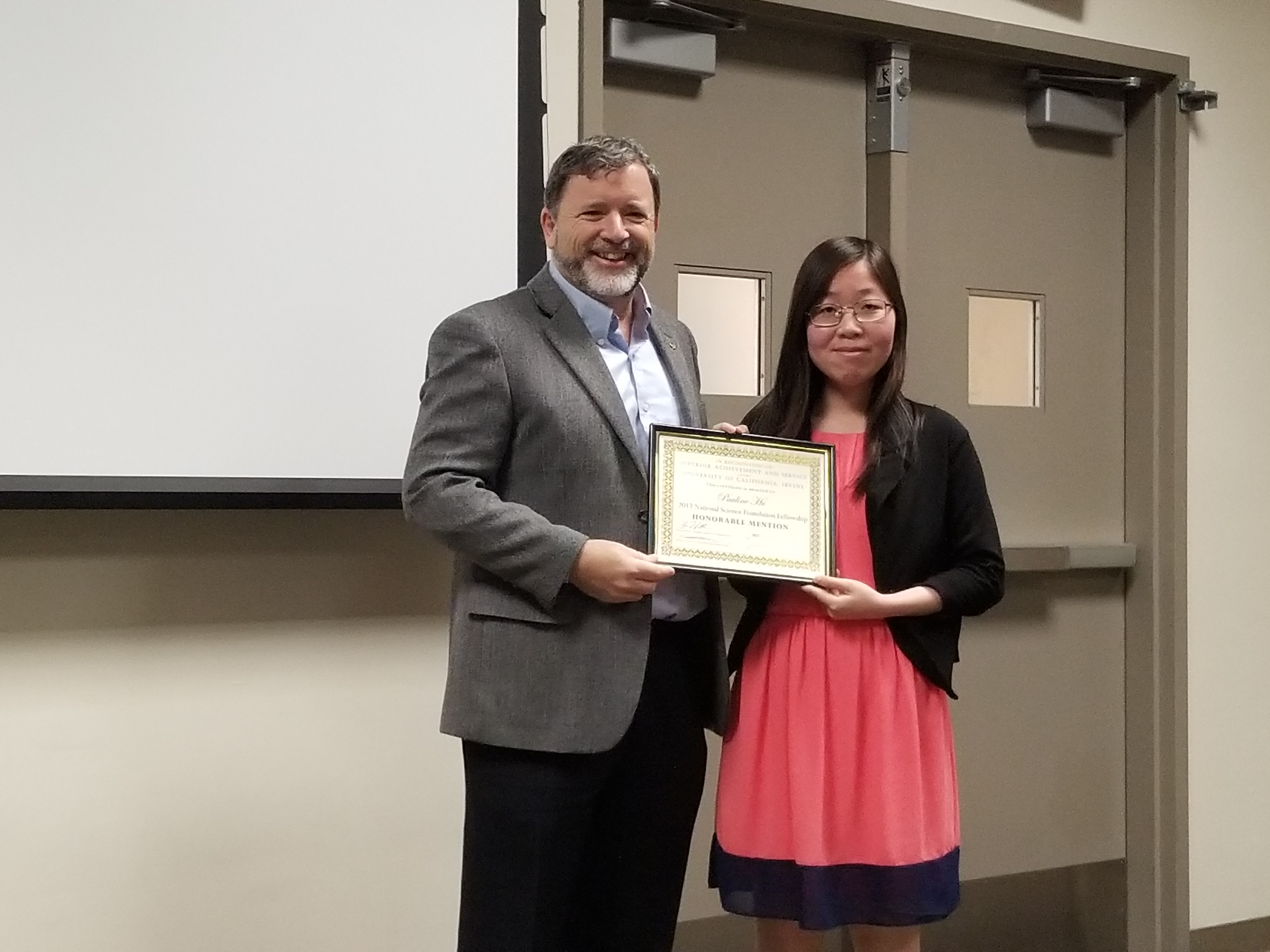Pauline recently graduated cum laude from UC Irvine with a double major in Education Sciences and Social Policy & Public Service. She came to the United States ten years ago and did not speak any English and still considers her English language skills to not be proficient. At UCI, she worked in the Digital Learning Lab under the supervision of Dr. Mark Warschauer. As an undergraduate, she presented her independent research at different local and national conferences. She has achieved a variety of academic honors such as the AERA 2017 Undergraduate Fellow, 2017 Chancellor’s Award of Distinction and the School of Social Science’s Order of Merit. She applied for the 2016-2017 National Science Foundation Graduate Fellowship and received Honorable Mention as an undergraduate senior. Currently, she is pursuing her doctorate in Educational Psychology at the University of Wisconsin, Madison.
How did I hear about the NSF fellowship?
I knew about the NSF Fellowship through my graduate student mentor. In the summer, my graduate student mentor met with me individually to discuss my future plans after UCI. At that time, I was struggling between whether I should pursue a Masters or a PhD. I was very passionate about doing research, but I was worried that I was not ready. At that time, I also didn’t know my research interests. My main interest is to help English Language Learner (ELL) students like me do better in school. After a long conversation with my mentor, she told me about the NSF fellowship. At that moment, I thought “applying for a national fellowship – am I even qualified?”
I’m very thankful that I had the opportunity to work at the SOP office as a student intern during my undergraduate time. Through this position, I realized the application process can be overwhelming, but rewarding. I heard stories about students who went through the process and received awards and students who didn’t get the award but received acceptance to grad school. I know that it was not just about getting the award, it was also the process and the growth. Therefore, I decided to give it a try.
What resources have you used when preparing your application?
My mentor provided me with a variety of resources on campus – past winning applications, some books about Science Motivation, etc. From my experience working at SOP, I know that applying for competitive scholarships can be overwhelming. So I actively reached out for more resources and guidance.
As I was working closely with my mentors, I reached out to Michelle and Courtney to get their advice on my NSF application. They read through my application essays carefully and provided many helpful comments. Their expertise in helping students apply for national scholarships gave me a realistic perspective on my qualifications and applications. By the time I submitted my application, I was on the ninth draft of both essays.
What did you learn or gain from the process?
Throughout the process of revising my research proposal, I also figured out my plan for after graduation – I want to pursue a doctoral degree and conduct research. As I was working on my application, I was challenged to think about the intellectual merit and broader impacts of my research. I realized that I can contribute to the literature as well as make an impact in society. That’s exactly what I want to do with my life. Therefore, I went on and submitted my applications for several PhD programs. I used my NSF personal statement and revised it for my graduate school applications.
After spending over four months working on my application, I was honored to receive Honorable Mention. Even though I’m not getting the financial support from NSF, the skills that I gained from the application process are very useful. I was accepted into the number one ranked PhD program in Educational Psychology at the University of Wisconsin, Madison and recieved full-funding.
Tips for students who are interested in applying for the NSF.
If you have the research experience, give it a try! It doesn’t hurt to try, and you will grow a lot throughout the process. Given that it is very similar to graduate school applications, it is not too time-consuming because you don’t need to write a completely different essay. Instead, if you are serious about graduate school, start on your NSF application in the summer. Get a lot of help from your advisor and the SOP staff. Then, by the time you submit for grad school, you will have a strong application. If you are not sure about grad school yet, still give it a try in the summer. NSF really challenges you to think deeply about your research and what you want to do as a researcher. The intellectual merit and broader impacts criteria will make you think more seriously about your research interests. The amount of work to prepare a strong NSF application is very similar to the level of work that you should be doing in grad school as well. So if you can manage the process or learn to manage the process early, you are more ready for grad school.
